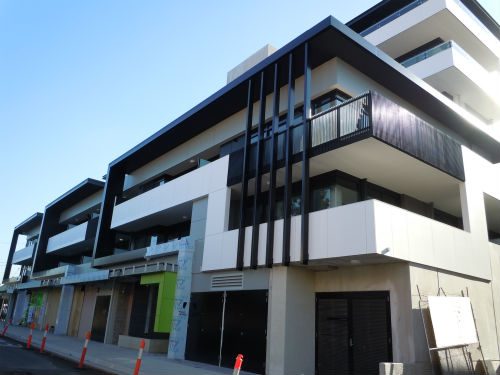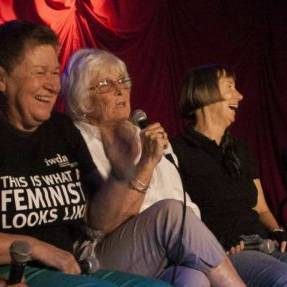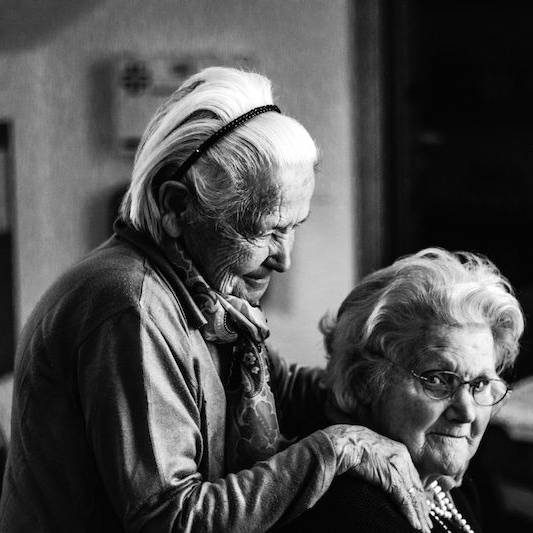 Many of us, as older lesbians, have experienced the stress of moving house.
Many of us, as older lesbians, have experienced the stress of moving house.
We all need shelter in our heads. Article 25 of the United Nations Declaration of Human Rights acknowledges that we all have a right to a standard of living to adequately provide for our well being, this includes the ability to obtain adequate food, housing and clothing. As a signatory to this document, Australia has obligations to all its citizens.
Many of us, as older lesbians, have experienced the stress of moving house. Sometimes it’s been an improvement in our conditions. For many, the first move out of the family home is the first step towards independence and can be filled with excitement. Others may have felt pressured by family members or themselves to move out due to their sexuality.
Life circumstances, hard work, opportunity, luck or the lack of it and culture, all influence our housing outcomes. Some of us have inherited a house or the resources to buy one. Others have had steady incomes and/or partners with the means to purchase our housing. Some lesbians who emerged from heterosexual marriages may have secured most of a house during financial settlement because they had dependent children. Others may have not claimed any part of their former partnership’s assets when they ‘came out – they may have just had to walk away with nothing to preserve their own physical or emotional safety. Some may not have worked because they were raising children, or because they ‘worked’ as unpaid activists. Or if they worked it was in lowly paid, insecure or irregular jobs where it was impossible to pay back a mortgage. Some of us choose to party, travel and spend all of our income, preferring the flexibility that renting can provide.
Due to the lack of security offered in private rental accommodation, Australia has very high rates of homeownership.
The 2011 Census showed that 67% of Australians either owned their own home or were paying off a mortgage on it. Private rental is affordable for people working and earning a decent salary. For anyone with low income and low assets, private rental can be very difficult. Often lesbians on low incomes have sweetheart deals with friends or family where they might be paying below-market rental. But what happens when their friend or landlady dies or circumstances change? Or they’re given the Notice to Vacate for a non-specified reason? With the high rents in the inner suburbs of Sydney and Melbourne, it’s unaffordable to rent a flat if your only income is Centrelink benefits. Often the rent itself exceeds the lesbian’s income. People on low incomes, in private rental, are at risk of homelessness and this vulnerability increases with age.
There are many situations that can lead a lesbian to experience housing stress.
It is defined as paying more than 30% of your income in rent. It is considered extreme housing stress if you’re paying more than 50% of your income for your housing.To address these issues in our community, in 2011, Matrix Guild of Victoria, in partnership with the social housing provider, Womens’ Property Initiatives, bought three, very comfortable 2 bedroom apartments in Brunswick. These will always be rented, (at 25% of the household’s income), to older lesbians who are on low incomes with assets of less than $30,000. To honour Heather Chapple who requested the seeding money for us to purchase these apartments, they are called ‘Heather’s Flats’. They have been built to be universally accessible. This means the residents aren’t forced to move if they develop a disability, for instance, if they have a stroke and may need to shower seat. Heather’s Flats are currently rented to three older lesbians, but we do occasionally have a change in tenants.
Apart from housing stress, living alone and growing older brings both joys and challenges.
Some lesbians thrive as they age, free of concern about being cool, they may have connections to large lesbian feminist networks as well as close, supportive friends. Concern about body image diminishes somewhat and they joke about the inevitable effects of gravity on the human body. They may have the time to focus on activities about which they are passionate – creative or activist pursuits, grandchildren or intellectual endeavours. This feeling of connection to friends and to a worldwide group is nourishing and life-affirming. (Ea Mulligan, in her paper ‘Lesbian Zest: Tips on How to Thrive and Flourish’)
But ageing can also bring feelings of loneliness and isolation, particularly if mobility is restricted and it’s difficult to get to events and functions. Ageing might bring more interaction with services and family and these may or may not be lesbian-friendly. Even being lesbian-friendly isn’t really enough. Some elders miss the lesbian company. Matrix is planning a visiting service where lesbian volunteers will meet with isolated older lesbians in their homes or residences for a minimum of two hours per month. The visitors will be supported by a coordinator and receive induction training. They will be covered by insurance and will receive a small travel allowance for visits.




